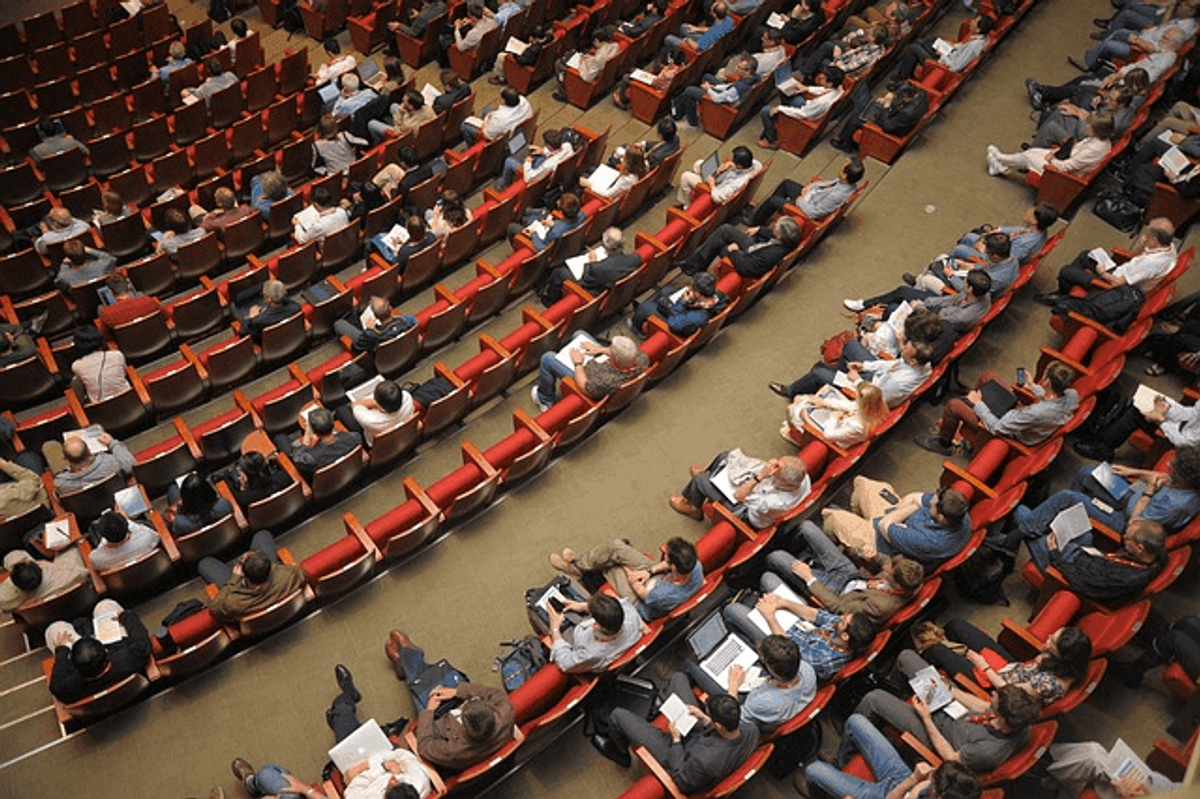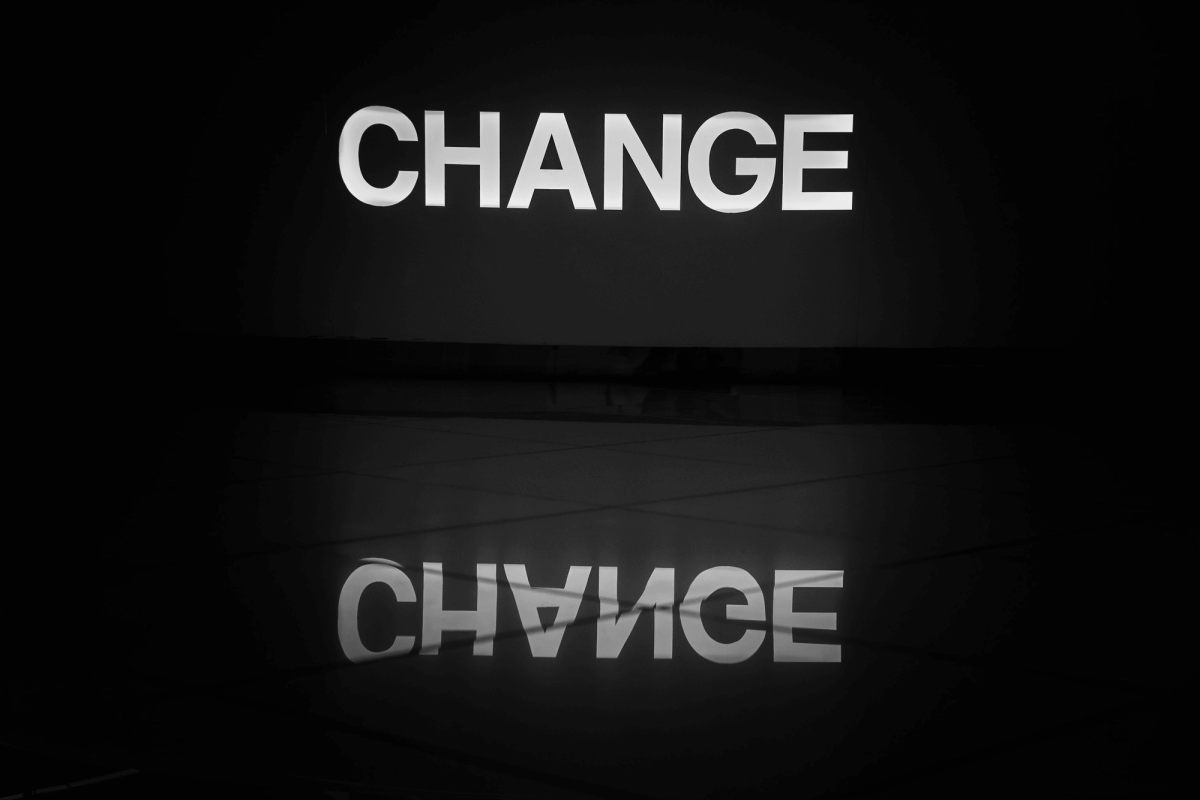How to Become an Event Planner: Mastering the Art of Creating Unforgettable Experiences

Introduction to Event Planning as a Rewarding Career Choice
Embarking on a journey to become an event planner immerses you in a dynamic world of creativity and coordination. It's an arena where your knack for planning events meets a client's dream. This ever-evolving event scene caters to diverse clientele, from private individuals celebrating life's milestones to large corporations hosting business meetings. With each event comes the opportunity to craft memories, heighten awareness, or boost brand visibility. Aspiring professionals seeking a lucrative event planner salary, diverse experiences, and creative satisfaction find the event planning career to be a perfect fit.
Quick Summary
Becoming an event planner offers a rewarding career in a creative and dynamic industry. Successful planners excel in communication, time management, and creativity, adapting swiftly to unforeseen changes. Networking is essential for gaining insights and fostering collaborations, while staying informed about industry trends ensures relevance. Building strong client relationships and continuously updating skills through formal education and hands-on experience enhances expertise. Ultimately, a tri
Section 1: Getting Started

Understanding the Role of an Event Planner
Event planners are the architects of experiences. Beyond just being the coordinators of parties or business meetings, these professionals dive deep into the essence of every event. An event planner is an expert who understands the nuances of different occasions, be it sporting events, major conventions, or intimate children's birthday parties. Moreover, with the rise of virtual events, event planners now also grapple with the challenge of ensuring seamless online experiences. They liaise with everyone involved, ensuring the lighting is perfect, the sound system is glitch-free, or the online platform is user-friendly. They're the unsung heroes ensuring every detail, from the start to post-event follow-up, is meticulously managed.
Exploring the Diversity of Events: From Weddings to Corporate Gatherings

Today's event industry is a melting pot of diverse event types. At one end, you have wedding planners orchestrating dreamy ceremonies, ensuring that every bride and groom's special day goes off without a hitch. Then there are those specializing in corporate events, where the goal is to convey a company's message, launch a product, or facilitate networking events. The spectrum also covers event planners adept at managing government meetings, ensuring protocols are followed, and objectives met. Whether it's a grand exhibition management for event professionals, fundraising events for charities, or even mall events hosting awareness campaigns at local malls, the industry is diverse and dynamic.
Recognizing the Skills and Qualities of a Successful Event Planner

To thrive in the event scene, certain skills and qualities set you apart. A triumphant event planner isn't just about organizing; it's about foreseeing, innovating, and executing. Effective communication is at the core of event planning skills, as you'd need to comprehend client visions, negotiate with vendors, or rally your team. A keen attention to detail ensures no element is overlooked, be it in venue aesthetics, guest lists, or technical specifics. Time management is another essential skill. With multiple deadlines, from vendor contracts to invitation dispatches, a professional event planner has to be on top of it all.
Additionally, adaptability is critical. In an industry where last-minute changes are common, be it due to client requests, vendor issues, or unforeseen circumstances, an event planner needs to think on their feet. This adaptability ties in with problem-solving skills. Finally, understanding the latest trends in the event industry, being aware of innovative technologies, and having a flair for creativity are all prerequisites. Event planning is as much an art as it is a skill, and a triumphant event planner beautifully blends both.
Section 2: Education and Training

Formal Education vs. Practical Experience: Weighing Your Options
When contemplating a future in the event scene, one often wonders about the weightage of formal education versus hands-on experience. A bachelor's degree in fields like hospitality management, PR, or a degree in business management undoubtedly provides a robust foundation in the principles and practices of the industry. Such formal training introduces you to the strategic planning and meeting management concepts essential for an event planning career.
However, as many event professionals will attest, there's an unmatched value in acquiring relevant experience from event-planning firsthand. Tackling the challenges of real-world event scenarios, from managing sudden venue changes to adapting to client feedback, sharpens your skills in ways a classroom might not. The hands-on experience you gain can be the determining factor for potential employers or potential clients who seek seasoned events professionals who to bring their visions to life.
Pursuing Relevant Degrees and Certifications

To solidify your standing as an expert in the field, obtaining relevant certifications can distinguish you from others. Leading institutions in the sector provide highly-regarded qualifications. Such endorsements serve as evidence of your expertise and commitment to excellence. One such prominent body in the sector is the Events Industry Council (formerly known as the convention industry council).
Moreover, many institutions now offer event planning courses, covering diverse topics from vendor management to customer relationship management. Whether you're a novice looking to grasp the basics or an industry veteran aiming to refresh your knowledge, these courses are invaluable. They not only add to your qualifications but also introduce you to the latest trends, technologies, and best practices in the event industry.
Gaining Practical Experience through Internships and Volunteering

One of the foundational steps to becoming an accomplished event planner is gaining hands-on experience. While being a certified event planner with event planning certifications can set you apart, the real-world application through internships and volunteering can cement your expertise.
Many institutions offer courses in event management, covering everything from vendor relations to CRM. For those just stepping into the event management world or seasoned professionals looking to refine their skills, such courses are invaluable. They not only boost your qualifications but also familiarize you with the latest trends, tools, and best practices, ensuring you're well-equipped to craft memorable experiences for your clients.
Section 3: Building Essential Skills

Communication Skills: Navigating Relationships with Clients and Vendors
In the dynamic world of events, communication forms the bedrock of successful execution. It's not just about conveying ideas; it's about listening, understanding, and translating visions into reality. Whether you're clarifying a client's expectations, negotiating deals with venues, or coordinating with vendors for various services, effective communication is paramount.
Clients rely on event planners to bring their vision to life. This could range from company events aiming for a specific branding message to personal events like weddings where individual tastes play a significant role. Navigating these diverse expectations demands impeccable communication skills. Furthermore, a triumphant event planner also remains in constant touch with vendors, ensuring that services ranging from décor to catering are in line with the event theme and client's expectations. Building trust with vendors, potential clients, and other event professionals is vital, and clear communication is the key to such trust.
Time Management: Juggling Multiple Tasks and Deadlines
The event management scene can be frenzied, with multiple moving parts. From securing event venues, sending out invitations, coordinating with vendors, to managing budgets, an event planner juggles a multitude of tasks simultaneously. This is where exceptional time management comes into play.
An event planner often has to oversee multiple events, each with its unique timeline. Being able to prioritize tasks, allocate adequate time for each activity, and ensure adherence to deadlines ensures the smooth progression of event planning. Moreover, effective time management also allows for contingencies, ensuring that last-minute changes or emergencies are handled efficiently.
Attention to Detail: Ensuring Nothing Falls Through the Cracks
Attention to detail can make or break an event. It's the subtle nuances, the small touches, that elevate an event from ordinary to extraordinary. Whether it's selecting the perfect shade of linen to match a wedding theme, ensuring the acoustics of a venue for a corporate presentation, or managing dietary preferences of guests, a meticulous eye for detail is indispensable in the event industry.
This skill ensures that nothing is overlooked. Be it in the intricacies of event contracts, the nuances in the client's vision, or the logistical aspects of event management, ensuring every detail is considered prevents potential hiccups and contributes to a flawless event.
Creativity and Innovation: Designing Unique and Memorable Experiences

The demand for unique and memorable experiences is ever-present in the events industry. With the advent of virtual events, changing demographics, and evolving guest preferences, event planners need to consistently reinvent and innovate.
Effective event planners remains abreast of the latest trends, from technological advancements in virtual event platforms to innovative décor ideas. They continually seek inspiration, be it from industry seminars, networking events, or even global cultural shifts. But more importantly, they possess the ability to think outside the box, merging client expectations with innovative concepts to design truly unforgettable experiences. Whether it's a distinctive theme for a children's birthday party, a groundbreaking product launch, or a hybrid event integrating both physical and virtual elements, creativity and innovation remain at the forefront of exceptional event planning.
Section 4: Networking and Industry Knowledge

Importance of Building a Strong Professional Network
In the event planning business, your network often determines your net worth. Building a strong professional network is invaluable for both newcomers and veterans in the event scene. By attending networking events, both local and international, you get to rub shoulders with the who's who of the event world. These gatherings provide a platform to share experiences, discuss challenges, develop expertise and explore collaboration opportunities.
Online groups, especially those associated with international associations or the national association for event professionals, also serve as reservoirs of knowledge. They offer insights into the latest trends, best practices, and even job opportunities. Not only do these platforms connect you with seasoned event planners and coordinators but also with potential clients, vendors, and even potential employers. With a broad and diverse network, you're better positioned to get referrals, recommendations, and insights that can propel your own event planning business career forward.
Staying Updated with Event Industry Trends and Innovations
The event industry is in a perpetual state of evolution, with new trends, technologies, and methodologies emerging continually. Staying updated is not just a prerequisite; it's a necessity. Subscriptions to reputable event management journals, magazines, and online publications provide insights into the latest happenings, from the rise of virtual events to innovative décor trends.
Regular research on industry leaders and their initiatives gives a firsthand look into best practices and innovative approaches. Platforms like the Events Industry Council or the International Live Events Association often publish white papers, case studies, and articles that delve deep into various facets of event planning. These resources can significantly bolster your knowledge, and gain experience, ensuring that you remain a step ahead in this competitive landscape.
Attending Workshops, Conferences, and Seminars

Workshops, conferences, and seminars are more than just learning opportunities; they are immersive experiences. These gatherings provide a dual benefit government meeting professionals: professional development and networking.
By attending these events, you expose yourself to cutting-edge trends, tools, and technologies in the events industry. These sessions, often helmed by experts and industry leaders, provide in-depth knowledge, from the nuances of CRM to strategic planning for large-scale events.
Beyond the learnings, these gatherings are also prime networking opportunities. Interacting with peers provides a fresh perspective on challenges and solutions in the event planning world. It can lead to collaborations, mentorship opportunities, or even job openings. Whether it's a workshop on sustainable event practices, a conference, an event planning certification or a seminar on maximizing event sales, these experiences enrich your skill set, expand your network, and solidify your standing as a well-rounded event planner.
Section 5: Developing Business Acumen

Establishing Your Own Event Planning Business: Legal and Financial Considerations
Embarking on the journey of starting your event planning business is thrilling, but it comes with its own set of challenges, primarily legal and financial. First and foremost, it's vital to comprehend the specific legal requirements of those planning events in your jurisdiction. This may involve obtaining an appropriate business license, understanding contracts and agreements, and adhering to any local or national regulations related to events and public gatherings.
From a financial perspective, understanding the tax implications of running your own business is paramount. Investing in a good accounting system or seeking the expertise of a financial advisor can save you from potential pitfalls. Budgeting, financial forecasting, and ensuring positive cash flow are also essential components of a prosperous event planning company. With events industry nuances, like payments made in advance or the potential for last-minute cancellations, financial planning becomes even more crucial.
Pricing Strategies: Determining Rates for Your Services
Pricing isn't just about covering your costs; it's a reflection of your brand's value in the market. To determine competitive yet profitable rates for your services, it's imperative to conduct comprehensive market research. Understand the market rate for similar services, factor in potential client budgets, and assess the unique selling points you bring to the table.
Are you offering specialized services, like destination weddings or corporate event management? Does your portfolio include major events that position you as an industry leader? These aspects can influence your pricing strategy. Additionally, certifications like the Certified Special Events Professional or the Certified Government Meeting Professional can also play a role in justifying premium pricing. Regularly revisiting and adjusting your pricing based on market dynamics and your growing expertise ensures you remain competitive and profitable.
Marketing Your Event Planning Services: From Social Media to Networking

Event planners success often hinges on their online presence. Platforms like Instagram or Pinterest are not just social media networks; they are powerful marketing tools. By showcasing past planned events, sharing behind-the-scenes glimpses, or highlighting client testimonials, you can engage potential clients and establish a robust brand identity.
However, the importance of traditional networking cannot be understated. Attending networking events, joining associations like the International Association of Exhibitions and Events or the Government Meeting Professionals, and actively participating in local and attend networking events can significantly boost your brand's visibility. Such events provide an avenue to foster relationships, receive direct feedback, and even secure new business. Integrating both online and offline marketing strategies ensures a holistic approach to promoting your event planning services, reaching a diverse audience, and solidifying your position in the event management scene.
Section 6: Pre-Event Planning

Client Consultations: Understanding Client Expectations and Vision
For event planners, the success of any event hinges on understanding the client's vision. Initial client consultations are paramount, serving as the foundational step in building a roadmap for the event. Active listening, paired with asking the right questions, ensures that you capture the essence of what your client desires.
Whether they're envisioning a grand corporate event, an intimate fundraising event, or a vibrant children's birthday party, the role of event planners involves aligning your planning strategies with their expectations. Documenting their requirements, referring back to them during the planning process, and always keeping open channels of communication ensure that the client's vision remains at the forefront of all decisions.
Budgeting Basics: Allocating Resources for Various Elements
Financial planning is the backbone of a triumphant event. Proper allocation of resources not only ensures that the event is executed flawlessly but also that it remains financially viable. Begin by understanding the client's budget constraints and prioritize spending accordingly. Is the focus on a lavish venue, or is entertainment the main draw? Perhaps the client places a premium on exquisite décor or unique experiences. By balancing costs between event venues, entertainment options, décor, catering, and other elements, you craft an event that's memorable yet doesn't break the bank. Tools like CRM systems can aid in efficient budget tracking, ensuring every penny is accounted for.
Venue Selection: Factors to Consider for the Perfect Setting

Choosing the right venue can make or break an event. Beyond just aesthetics, several factors play a critical role in venue selection. Accessibility is key: consider the location, transportation options, and parking availability. The capacity of the venue should comfortably accommodate your guest list, with provisions for any last-minute additions. The ambiance should resonate with the event's theme, be it a formal setting for company meetings or a whimsical locale for children's parties. Technical specifications, like audio-visual equipment, stage setup, and lighting, are also paramount, especially for big events or conventions. Lastly, liaise with venue managers or representatives to understand any restrictions or additional services they might offer.
Event Themes and Concepts: Bringing Ideas to Life

A cohesive theme can transform an event from mundane to magical. When conceptualizing event themes, take cues from client preferences, current trends, and the nature of the event. Company events might benefit from sophisticated and minimalistic themes, while children's parties can be a canvas for vibrant colors and imaginative setups. Themes can also be influenced by cultural, seasonal, or contemporary inspirations. Once the theme is set, every element, from invitations to décor and entertainment, should echo this concept. This unified approach ensures that guests are immersed in a unique experience, making the event truly unforgettable.
Remember, innovation is crucial, and with the rise of virtual events and evolving guest expectations, your ability to adapt and innovate will set you apart in the event planning industry.
Section 7: Crafting the Experience

Collaborating with Vendors: Choosing the Right Partners for Success
In the bustling event scene, vendors play a pivotal role in transforming visions into realities. Collaborating with the right partners is essential. From florists who provide the ideal blooms to caterers that serve delectable cuisines, your choice of vendors impacts the overall event quality. Conduct thorough research, read reviews, and perhaps even attend a few events they've serviced to gauge their competence. Establish clear communication lines and ensure they're aligned with your event objectives, whether it's for company events, children's birthday parties, or major conventions.
Maintaining good relationships with vendors can also lead to discounts or additional services, adding value to the events you plan.
Designing Invitations and Décor: Creating a Cohesive Event Aesthetic

An event's aesthetic journey often starts with its invitations. These preliminary pieces not only provide crucial information but also set the tone and expectation for the event. When designing invitations, ensure they resonate with the theme, be it a formal business meeting or a lively fundraising event. Similarly, the décor should harmoniously amplify the event's essence. From the choice of colors to the layout and centerpiece selections, every décor element should work in tandem to create a cohesive atmosphere.
Leveraging hybrid events' potential, consider sending electronic invitations that mirror the event's aesthetic, ensuring a consistent experience for remote attendees.
Entertainment and Activities: Adding the WOW Factor to Your Events
Entertainment is often the heart of an event, creating lasting memories for attendees. Depending on the nature of the event, choose entertainment that aligns with the audience's preferences. For corporate gatherings, consider keynote speakers or professional performers. For more informal settings, live bands, DJs, or interactive activities like photo booths can elevate the experience. Additionally, for specialized events, explore niche entertainment options such as workshops, live art sessions, or tech-driven installations.
As the events industry evolves, blending physical and virtual experiences, think about integrating virtual entertainment options to cater to a broader audience.
Managing Logistics: Scheduling, Setup, and Execution

Logistics form the backbone of any great event. Right from transportation of equipment, managing event sales, to the setup of the venue, efficient logistic management ensures a seamless flow. Create a detailed schedule, factoring in setup and teardown times, intervals for each activity, and potential delays. For larger events, consider employing event managers or coordinators to oversee various logistic elements. Ensuring smooth transitions between segments, troubleshooting on-the-spot challenges, and maintaining communication among team members can make the difference between a well-executed event and a logistical nightmare.
Stay abreast with tools and software that can aid in efficient scheduling and execution, offering a streamlined experience to both clients and attendees.
Section 8: On the Day of the Event

Managing Last-Minute Changes with Grace and Efficiency
On the day of the event, even the most meticulously planned events can face unforeseen challenges. It might be a keynote speaker canceling at the last moment, unexpected weather changes for outdoor events, or technical hitches in hybrid events. Event managers need to showcase their adaptability by addressing such challenges gracefully. This could mean having backup speakers, emergency tents, or a tech team on standby.
By keeping a calm demeanor, using customer relationship management skills, and having a Plan B, C, and even D, professional event planners can ensure attendees remain unaware of any behind-the-scenes chaos, preserving the event's integrity.
Overseeing the Flow of the Event: Time Management and Adaptability
The smooth flow of events, particularly major events like conventions or fundraising events, largely depends on meticulous time management. An event coordinator must ensure each segment starts and ends on time, from welcoming remarks to the closing ceremony. This punctuality builds trust with attendees and stakeholders. However, in the dynamic event scene, strict adherence without adaptability can be detrimental. There might be instances where extending a session due to overwhelming participant engagement is more beneficial than sticking to the schedule rigidly.
Hence, while time management is pivotal, so is the ability to make on-the-spot decisions that enhance the event experience.
Troubleshooting and Problem Solving: Handling Unexpected Issues
Despite all preparations, issues will inevitably arise. These can range from minor hitches like a microphone malfunction to more significant challenges like an event venue's power outage. What differentiates a good event from a great one is not the absence of problems but the efficiency and speed with which they're addressed. Great event planners employ a proactive approach, anticipating potential issues, and having solutions ready. They might have technicians on-site, maintain open communication channels with vendors, and even engage with groups of event managers for real-time advice.
Additionally, post-event evaluations can highlight recurrent issues, providing insights for future events.
Section 9: Post-Event Follow-Up

Post-Event Evaluation: Gathering Feedback for Continuous Improvement
The process doesn't end when the lights go out. Evaluating the success and areas of improvement post-event is pivotal for event planners aiming to grow in their craft. Utilizing modern tools, such as CRM systems, can streamline the feedback gathering process. By sending out post-event surveys to attendees and stakeholders, planners can capture invaluable insights. It's important to ask specific questions about different event elements—venue selection, entertainment quality, relevance of topics in corporate events, etc. The feedback can also be sourced through engaging with participants online or conducting focus group discussions.
By methodically analyzing this data, planners can make informed decisions for their subsequent events, ensuring they remain at the forefront of the event scene.
Building Client Relationships: Turning One-Time Clients into Repeat Business
In the event planning industry, a satisfied client can be a gold mine of opportunities. By going beyond just delivering the event and genuinely investing in understanding a client's future needs, planners can turn one-off projects into long-term business relationships. Effective communication post-event, sending thank-you notes, periodically checking in, offering early-bird promotions for their next events, or even discussing trends that might interest them, are ways to keep the rapport strong.
Additionally, understanding their preferences for potential venues, themes, or entertainment options can position event planners as a valuable partner for a client's future endeavors, be it children's parties, corporate gatherings, or major conventions.
Showcasing Your Work: Using Event Portfolios for Marketing and Branding
An event planner's past successes are their strongest selling points. Crafting a captivating portfolio not only showcases their capabilities but also acts as a tangible testament to their expertise in the events industry. This portfolio can be a mix of high-quality photos from past events, testimonials from satisfied clients, and descriptions of challenges faced and how they were overcome.
Today's digital age also offers opportunities beyond traditional portfolios. Planners can create video montages of their events, blog about unique challenges faced during specific events, or even conduct webinars on the ever-evolving event scene. Sharing these across platforms like LinkedIn can exponentially increase visibility, attracting potential clients and opening doors to numerous job opportunities.
Section 10: Evolving and Advancing in the Field

Continuously Updating Your Skills: Lifelong Learning in Event Planning
The event planning industry is dynamic, with trends, tools, and technologies evolving constantly. To remain relevant and competitive, continuous learning is indispensable. Embracing formal training programs, pursuing advanced event planning certificates and certifications, or even attending short-term courses can sharpen one's skills. Attending workshops, seminars, and international association conventions allows event planners not only to gain knowledge but also to network with industry professionals, understand global trends, and gain insights into the latest in event technology. With virtual events becoming more prevalent, courses on digital platforms, virtual reality integrations, or online sales strategies can also be invaluable.
Exploring Specialization Opportunities: Corporate Events, Destination Weddings, etc.
The breadth of the events industry offers myriad opportunities for specialization. While some event planners might excel in handling expansive corporate events or government meetings, others might find their niche in curating intimate destination weddings or thematic birthday parties. Identifying a specialization not only allows for deeper expertise but can also offer a competitive edge in a crowded market. It's essential to research industry leaders, understand market demands, and align specialization with one's passion. For instance, if sustainability is a passion, specializing in eco-friendly events or awareness campaigns can be fulfilling and profitable. Similarly, if one has a knack for public relations and brand collaborations, venturing into corporate product launches can be an exciting avenue to explore.
Mentoring and Coaching: Giving Back to Aspiring Event Planners
As seasoned event professionals climb the ladder of success, mentoring the next generation can be both a way to give back and to contribute positively to the events industry. By sharing experiences, challenges, and learnings, they can guide newcomers, helping them navigate potential pitfalls. Initiating coaching sessions, offering internships, or simply being available for guidance can have a profound impact. It's not just about sharing technical knowledge but also insights into managing client expectations, pricing strategies, or effective public relations. By fostering a culture of mentorship, experienced planners can ensure the upliftment of the entire event planning scene, fostering innovation, professionalism, and collaborative growth.
Conclusion:
Becoming a Master of Creating Unforgettable Experiences

Diving headfirst into the realm of event planning is akin to embarking on an odyssey, filled with challenges, learnings, and moments of sheer magic. Every event, whether it's a meticulous government meeting or a vibrant festive gala, contributes a new chapter to your unfolding story as you become an event planner.
At the heart of this journey lies the passion for bringing visions to life. As you maneuver through the intricate maze of budgets, logistics, and client expectations, it's essential to remember the core objective – creating experiences that linger in memories long after the event has concluded. This is what distinguishes a mere event organizer from a maestro of unforgettable events.
Knowledge is, without a doubt, a cornerstone in this journey to event certification. By continuously updating your skills, being attuned to the latest trends, and even revisiting the fundamentals, you ensure your strategies are both contemporary and effective. Subscribing to event management journals, engaging with industry professionals, can provide the edge in a competitive landscape. Starting with a bachelor's degree and enrolling in a training program can also aid in providing foundational understanding. For those keen on diving deeper into the world of events and seeking expert guidance, AMW Groups event management is a resourceful platform to explore.
Networking, in the event planning scene, goes beyond mere business contacts. It's about building relationships, understanding the evolving dynamics of the industry, and fostering collaborations that can make magic happen. Attending networking events, participating in local events, or simply meeting peers over coffee can lead to unexpected opportunities and game-changing partnerships. As event planners establish themselves, they often gain valuable experience from these interactions.
However, mastering the art of event planning isn't solely about the macro elements. The beauty often lies in the details. A keen sense of detail, an obsession almost, ensures that every element, from the shade of the tablecloth to the tune of the opening song, aligns with the desired ambiance and experience. It's these little nuances where planners often gain experience.
As you grow and evolve a successful career in this vibrant industry, remember to carry forward the experiences, both triumphs and lessons, from every event. Stay rooted in feedback, learn from every hiccup, and cherish every applause. The road to mastering the creation of unforgettable experiences is long and winding, but with passion, perseverance, and a touch of panache, it's a journey worth every step.
Frequently Asked Questions
What education do you need to become an event planner?
While a bachelor's degree in hospitality management, public relations, or business management provides a strong foundation, it's not strictly required. Many successful event planners combine formal education with hands-on experience through internships and volunteering. Industry certifications from organizations like the Events Industry Council can distinguish you from competitors. The most valuable combination includes relevant coursework, professional certifications, and practical experience managing real events to develop essential skills.
How much do event planners make per year?
Event planner salaries vary significantly based on location, experience level, and specialization. Entry-level planners typically earn $30,000-$40,000 annually, while experienced professionals can earn $50,000-$80,000 or more. Corporate event planners and those specializing in luxury weddings often command higher rates. Freelance planners may earn per-event fees ranging from $500 for small events to $10,000+ for large corporate gatherings or destination weddings.
What skills are most important for successful event planners?
Essential event planning skills include exceptional communication for client and vendor relationships, meticulous attention to detail, strong time management to handle multiple deadlines, and adaptability for last-minute changes. Problem-solving abilities are crucial when issues arise. Additionally, creativity helps design memorable experiences, while organizational skills ensure seamless execution. Understanding current industry trends and technology, particularly for virtual events, is increasingly important in today's event landscape.
How do I get started in event planning with no experience?
Start by volunteering for local nonprofits, community events, or religious organizations to gain hands-on experience. Pursue internships with established event planning companies or venues. Consider entry-level positions at hotels, catering companies, or corporate event departments. Take relevant courses in event management and pursue certifications from industry organizations. Network with local event professionals and attend industry meetups to build connections and learn from experienced planners.
What types of events do event planners specialize in?
Event planners can specialize in various areas including weddings, corporate events, trade shows and conventions, sporting events, fundraising galas, government meetings, and virtual events. Some focus on specific niches like luxury weddings, tech conferences, or charity fundraisers. Corporate event planners handle product launches, networking events, and business meetings, while social planners manage birthdays, anniversaries, and celebrations. Many planners diversify across multiple event types to maximize opportunities.
Do event planners need professional certifications?
While certifications aren't legally required, they significantly enhance credibility and marketability. The Events Industry Council offers respected certifications like CMP (Certified Meeting Professional) and CEM (Certified in Exhibition Management). These demonstrate professional competency and commitment to industry standards. Certifications help distinguish you from competitors, increase earning potential, and provide networking opportunities with other certified professionals. Many clients and employers prefer certified planners for their expertise validation.
What is the difference between wedding planners and corporate event planners?
Wedding planners focus on personal celebrations, emphasizing emotional elements, aesthetics, and family dynamics. They handle intimate details like floral design, ceremony coordination, and guest experience. Corporate event planners manage business objectives like brand messaging, networking facilitation, and ROI measurement. They coordinate conferences, product launches, and company meetings with emphasis on professional goals, logistics, and measurable outcomes. Corporate planners often work with larger budgets and more complex vendor relationships.
Related Resources
Calculators
Pricing Guides
Key Terms
Event environments using technology to create engaging, multi-sensory experiences.
Event MarketingMarketing strategy that promotes brands, products, or services through hosted or sponsored in-person or virtual events.
Attendee AcquisitionThe marketing strategies and tactics used to attract and convert target audiences into event registrants.
Event Experience DesignHolistic approach to creating memorable, purposeful attendee journeys at events.
Attendee Acquisition StrategyPlanned approach to attracting and registering target audiences for events.
Related Articles

What Does a Music Promoter Do?
In the music industry, where melodies interweave with the threads of creativity and passion, lies a crucial yet often underappreciated figure: the music promoter. These unsung heroes breathe life

The Role of a Music Consultant in Building a Music Career
Navigating the music industry can be overwhelming for new and even experienced musicians. While talent is essential, making the right decisions can equally be critical to success. That's where a m

What to Understand About Planning and Managing a Music Tour
When it comes to planning and managing a music tour, there are some key things to keep in mind. First and foremost, think and have a clear idea of what you desire to accomplish with the tour. Are you
